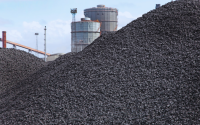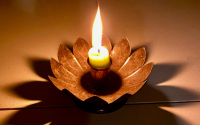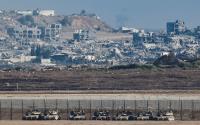23 March 2005Anna Mudeva
Nuclear power is back in vogue but talk of a revival in Europe may be premature unless governments offer incentives to persuade companies to invest in new reactors, analysts say.
Atomic plants are expensive to build and, despite producing almost no greenhouse gas emissions, face fierce opposition from environmentalists on safety grounds.
"It takes 8 to 10 years to build a new nuclear plant and it costs at least 3 billion euros," said Frank Barnaby, a nuclear security specialist at the independent Oxford Research Group.
"Private industry is not interested because it takes 10 years to get a return on investment and governments regard it as too expensive," he said.
Europe's pro-nuclear lobby, which has struggled to shake off the legacy of the world's worst nuclear accident at Chernobyl in 1986, believes the tide has turned in its favour.
Finland is building the region's first new nuclear plant for years while Britain has left the option open to build new plants and Italy and Poland have talked of venturing into nuclear power.
Analysts attribute the swing in the political climate to Europe's commitment to deliver big cuts in carbon dioxide emissions under the Kyoto protocol on global warming.
But the financial difficulties the sector can face were highlighted recently in the UK when the country's main nuclear generator British Energy (BGY.L: Quote, Profile, Research) came close to insolvency and had to be rescued by the government.
Europe is only likely to see a nuclear revival if countries provide economic incentives to encourage private sector investment, experts say.
"I don't see how it would happen without some form of government subsidies," said Prof. Geoffrey Hammond, of the nuclear department at the University of Bath.
Fraser McLaren, an analyst at ING Barings, agreed.
"Private sector involvement in new build may need some form of financial assistance," Fraser said, referring to the UK.
The Netherlands, which is considering prolonging the life of its only existing reactor, has ruled out the option of building new plants as too expensive.
DELAYING SHUTDOWNS?
Some analysts predict that a majority of European countries, including the ex-communist bloc, will keep the nuclear option open by extending the life of existing plants if not building new ones.
Support for keeping nuclear plants open longer is being voiced in Germany, the UK and Sweden.
"I expect that countries like Germany would at least extend the life of reactors. Until there are other alternatives to cover the shortfall, it doesn't make sense to give up nuclear," said Frank Umbach from the German Council on Foreign Relations.
He said abandoning nuclear energy at a time when Europe's energy consumption was rising and North Sea oil and gas reserves were falling, would make it more dependent on imports from Russia and unstable regions, such as the Middle East.
Surging oil prices and Europe's growing reliance on gas imports are helping calls to keep plants open, analysts say.
Nuclear generation costs are well below those of power produced from oil, coal, gas and renewable sources.
The need to replace aging coal-fired power plants and doubts that wind, solar and hydro plants could make up for the gap as well as deliver big enough CO2 cuts are also making the nuclear option look compelling, supporters say.
"If countries in Europe have to meet their Kyoto protocol targets then nuclear energy is going to be very welcome," said Luis Echavarri, head of OECD's Nuclear Energy Agency.
But environmental problems and proliferation worries add to the obstacle of high capital costs and remain key in the argument against nuclear.
"Before thinking about a nuclear renaissance, we should consider how to store the nuclear waste in a politically and publicly accepted way," the Oxford Research Group's Barnaby said. "We also need to be sure that there won't be a proliferation problem and a world full of nuclear weapons".
Environmental groups, such as Friends of the Earth, argue that nuclear power would only be a marginal solution to climate change as it contributed a small part of world electricity -- 16 percent according to data from the World Nuclear Association.






